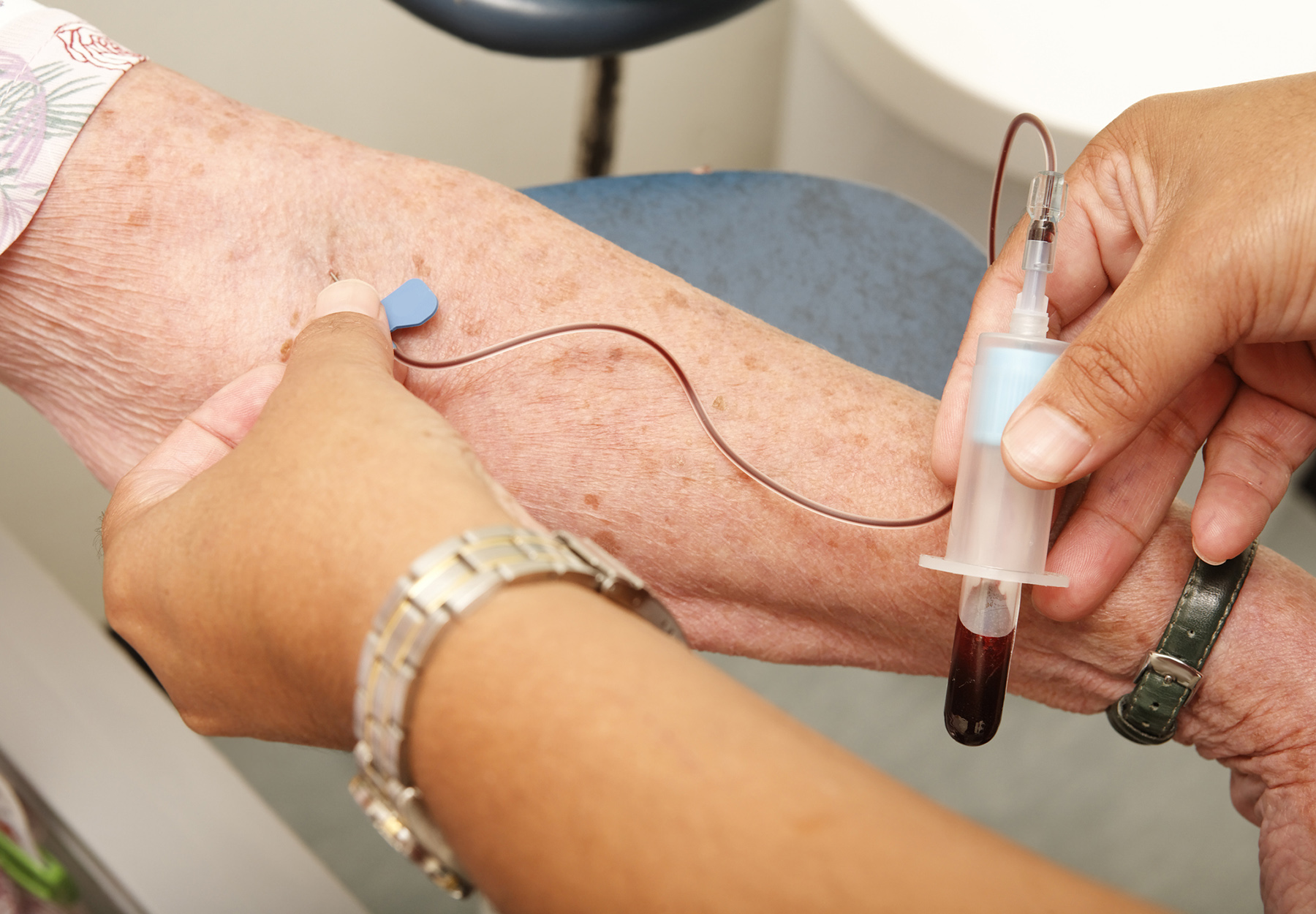A recent Swedish study revealed which Alzheimer’s disease (AD) blood tests may be best at identifying the disease in its earliest stages as well as which blood test is best at determining the effectiveness of treatment. The results could help ensure better monitoring of patients during treatment as well as better selection of participants for clinical trials for new Alzheimer’s treatments, the researchers involved say.
The study, published Dec. 1 in Nature Medicine and led by researchers from the University of Gothenburg and Lund University, found a variety of biomarkers showed the presence of Alzheimer’s early on, particularly plasma p-tau231, Aβ42/40, and p-tau217. Though p-tau231 and Aβ42/40 changed earliest of all, researchers found that p-tau217 was the best identifier of early AD over time, in both people with symptoms and those without.
Participants in the Nature Medicine study were drawn from Sweden’s BioFINDER-1 study, which took place from 2009 to 2014 in the southern region of that country. The more recent study included two cohorts, cross-sectional cohort 1, made up of 388 cognitively unimpaired [CU] people and 188 people with mild cognitive impairment (MCI), and longitudinal cohort 2, a subcohort of cohort 1 that included 147 CU people and 95 MCI people “with up to 6 years of longitudinal plasma measures,” the researchers write. In these cohorts, researchers:
- Compared how well the plasma biomarkers p-tau181, p-tau217, p-tau231, Aβ42/40, GFAP, and NfL identified Aβ pathology in the earliest stages of AD
- Explored “whether certain plasma biomarkers specifically change over time in those with confirmed Aβ pathology”
- Examined whether those changes were also linked to “longitudinal changes in cognition and brain atrophy in preclinical AD.”
The researchers also used a third, independent cohort of 161 CU people drawn from the Wisconsin Registry for Alzheimer’s Prevention (WRAP) to validate the results of their longitudinal analysis of cohort 2.
The Results
Of the six plasma biomarkers they looked at, “longitudinally,” the researchers noted, “only p-tau217 demonstrated marked amyloid-dependent changes over 4–6 years in both preclinical and symptomatic stages of the disease. They saw no such changes with the five other biomarkers, and noted that “only longitudinal increases of p-tau217 were also associated with clinical deterioration and brain atrophy in preclinical AD.”
The researchers write that their results confirm that plasma biomarkers identify the development of AD “and strongly highlight p-tau217 as a surrogate marker of disease progression in preclinical and prodromal AD, with impact for the development of new disease-modifying treatments.”
Get more from G2 Intelligence on Alzheimer’s blood tests from our Diagnostic Testing & Emerging Technologies monthly report (subscription or free trial required):
